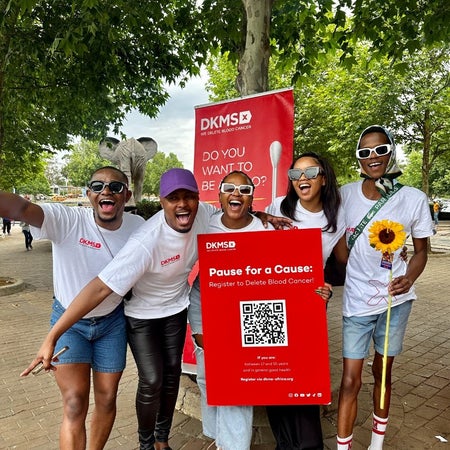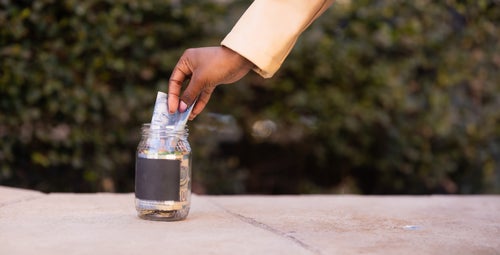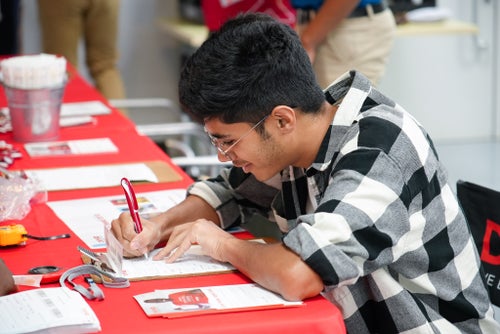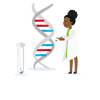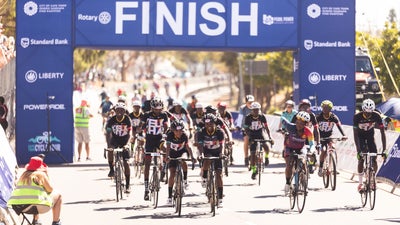Save blood cancer patients

Donors registered with DKMS worldwide
Donations from our donors worldwide
Frequently asked questions
What is blood cancer/leukaemia?
'Blood cancer' is the umbrella term used for a variety of malignant diseases of the blood-forming (haematopoietic) system. A distinction is made between two kinds, depending on how they originated: leukaemias and lymphomas. Leukaemias begin in the bone marrow, whereas lymphomas start in the lymphatic system. All blood cancers involve the degeneration of certain blood cells, which multiply uncontrollably and suppress the healthy blood-forming system. This prevents the blood from performing vital functions, such as fighting infections, transporting oxygen or stopping bleeding.
The three most common forms of blood cancer are:
- Leukaemias
- Lymphomas
- Myelomas (a kind of lymphoma)
How does a blood stem cell donation work?
Peripheral blood stem cell collection (PBSC)
In about 90 percent of the cases the stem cells are taken from the bloodstream. The donor is administered the growth factor G-CSF for five days. This drug increases the number of stem cells in the peripheral blood, which are then obtained directly from the blood using a special procedure. The donation takes 3-5 hours on one or two consecutive days. No surgery is necessary, you can usually leave the clinic the same day. This procedure has been used at DKMS since 1996. During the administration of the drug, flu-like symptoms may occur. Long-term side effects are not known according to the current state of research.
Bone marrow donation
In this method, bone marrow (not spinal cord!) is taken from the donor under general anaesthesia using a puncture needle from the iliac crest. Two small incisions in the area of the rear pelvic bone are usually sufficient. The resulting wounds are so small that they only require a few stitches or often no stitches at all and heal quickly. The procedure is performed in the prone position and takes about 60 minutes. With bone marrow donation, the risk is essentially limited to the anaesthetic. About 5 percent of the bone marrow is taken from the iliac crest. Usually, the donor's bone marrow regenerates completely within 2 to 4 weeks. Local wound pain can occur, similar to a contusion. Only in rare cases can there be pain that lasts longer. The stay in hospital can last up to three days in total. In most cases, as a precautionary measure, a sick note is taken for a few days.
The type of withdrawal depends on the health condition of the patient. Of course we try to take your wishes into account. However, depending on the patient's situation, a method may be excluded or preferred for medical reasons. In principle you should be prepared to use both methods.
Who will cover the cost if I donate blood stem cells for a patient?
The patient will pay for all examinations and treatments you may need before you make your donation. They will also cover the cost of any hospital visits, and reimburse you for travel expenses and any other related non-medical expenditure. Your travel to and from the hospital/collection centre will be organised by DKMS, who will also cover all other reasonable costs incurred.
